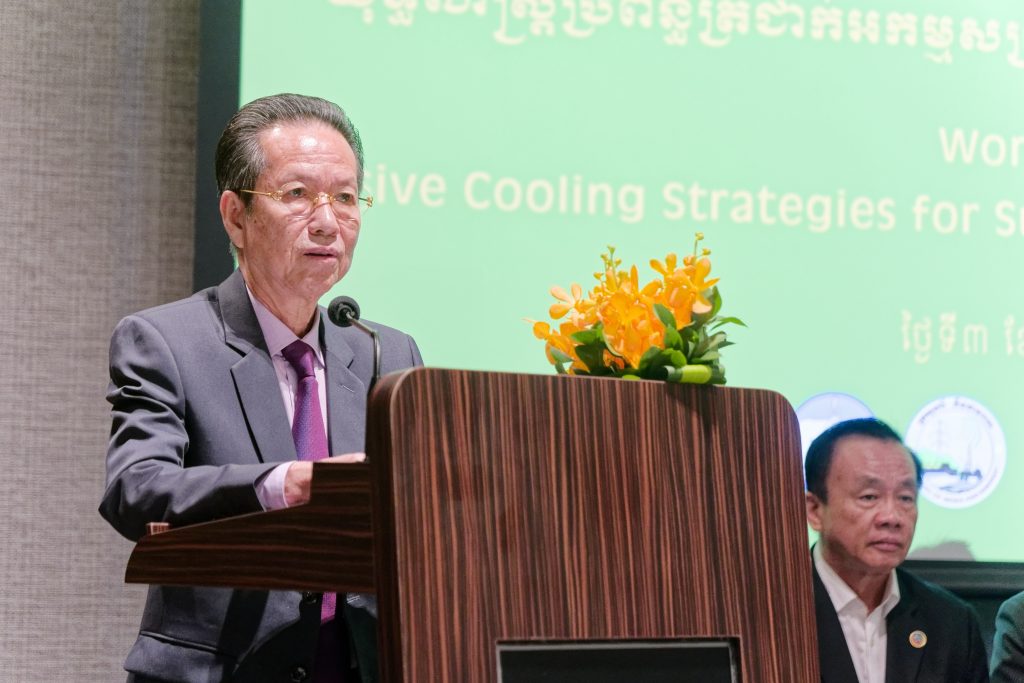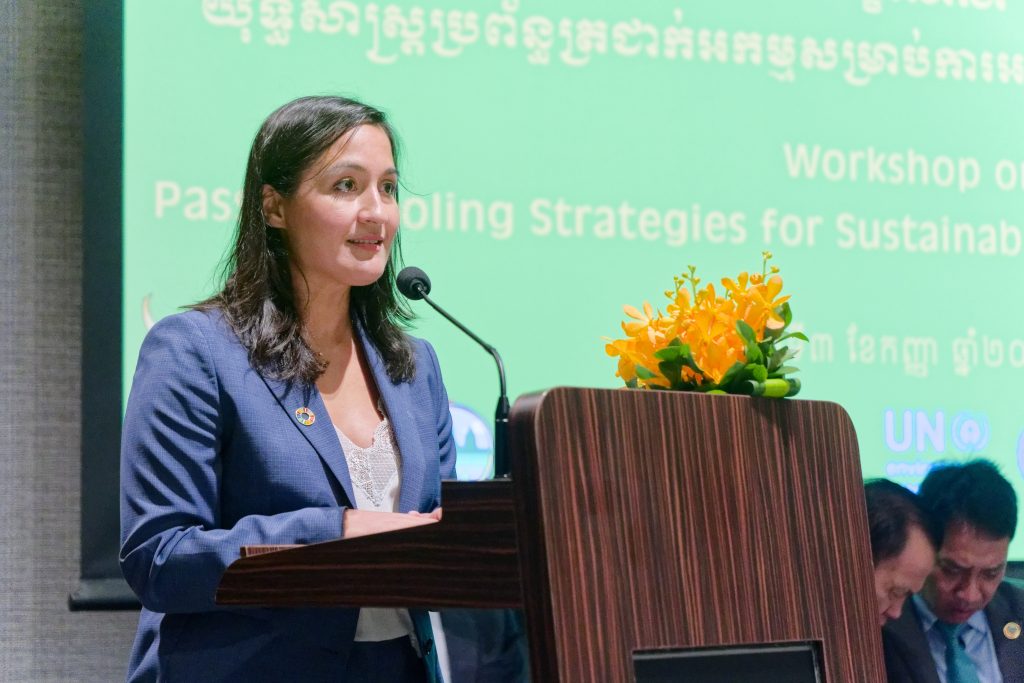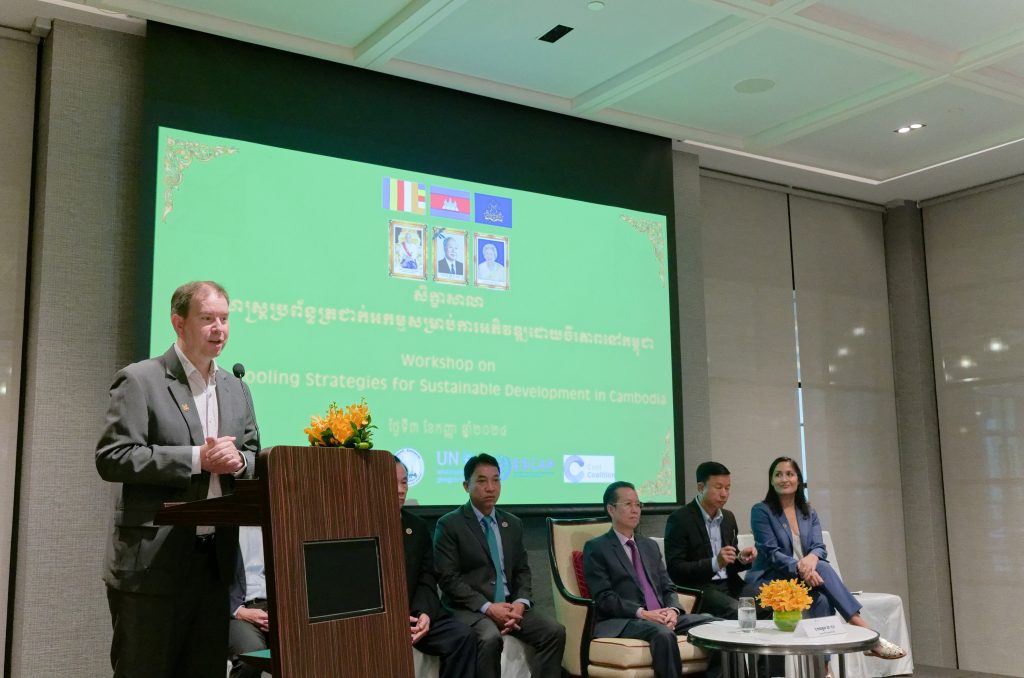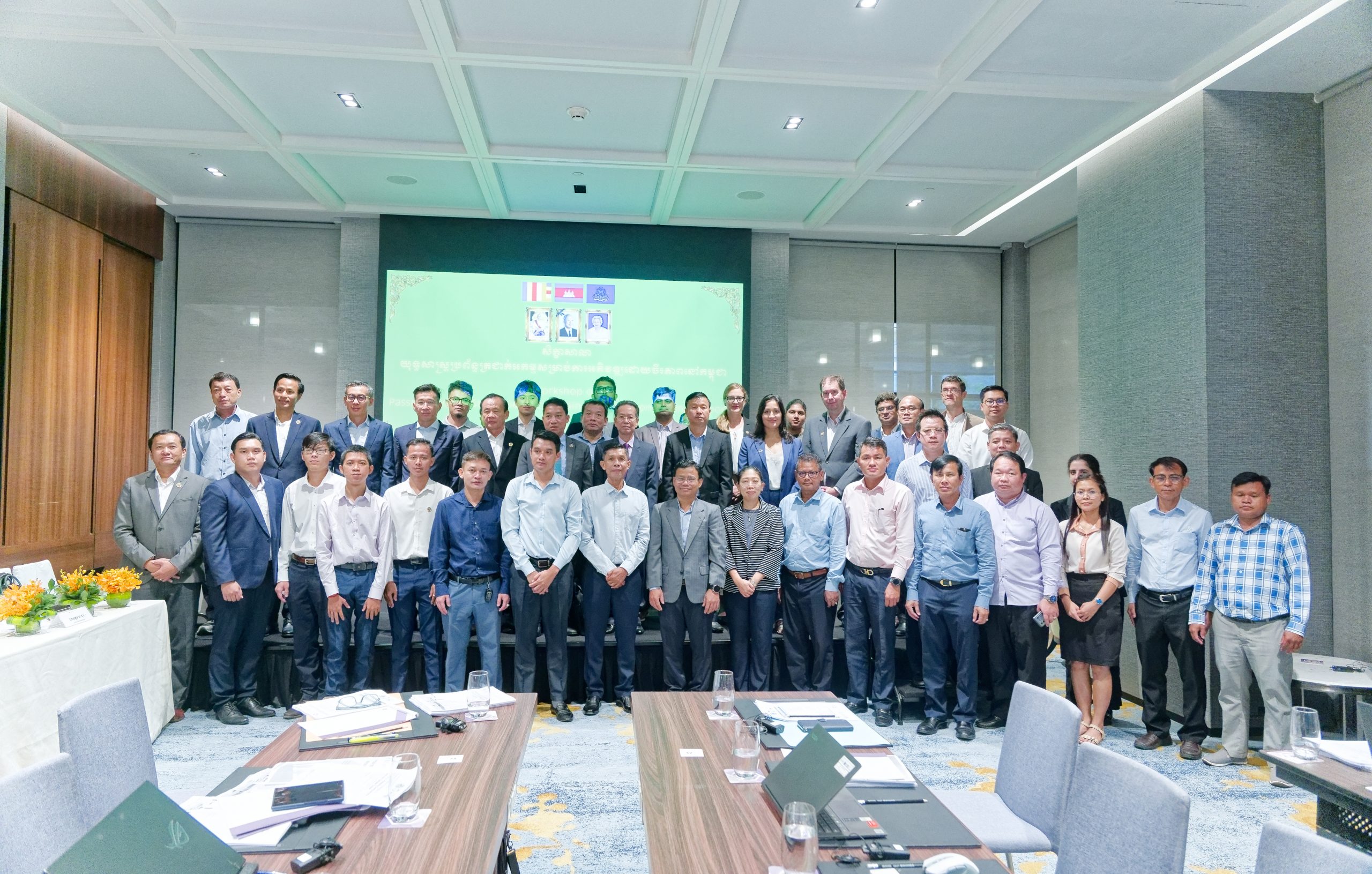Phnom Penh, Cambodia. The implementing government agencies and development partners of the Passive Cooling Strategies for Sustainable Development Project in Cambodia hosted an inter-ministerial event on “Passive Cooling Strategies for Buildings: Keeping Cambodians and the Climate Cooler” at the Hyatt Regency Phnom Penh.
- This event, jointly hosted in by the Ministry of Environment, Ministry of Land Management, Urban Planning and Construction, the Ministry of Mines and Energy, the United Nations Economic and Social Commission for Asia and the Pacific (ESCAP), and the UN Environment Programme (UNEP) within the context of the Cool Coalition, addressed approaches to help people stay cooler while countering the growing dependency on energy-intensive mechanical cooling systems.
- Cambodia has a hot and humid climate, and rising temperatures, due to climate change, are increasing the need for better strategies to keep buildings and urban areas cooler. As urban populations and incomes grow, the country faces a significant challenge: the increasing use of air conditioning has led to soaring energy consumption, peak loads, and greenhouse gas emissions. It is estimated that cooling currently consumes at least 45% of Cambodia’s electricity, and this demand is expected to nearly double by 2040 if current trends continue.

In addition, H.E. Tea Chup, Secretary of State, Ministry of Environment also raised that Cambodia is highly vulnerable to climate change, with recent heat waves reaching up to 42°C. These extreme heat events are expected to become more frequent, threatening human health, energy systems, the environment, and the economy. He called for quick action to strengthen the support and coordination of relevant ministries and institutions, development partners, the private sector, educational institutions, and other stakeholders to tackle these challenges. As welcome remarks, he stated that “This project has contributed to the implementation of Cambodia’s NCAP (National Cooling Action Plan) by providing key recommendations on passive cooling strategies for building codes, energy efficiency, and urban planning.”
Participants were led to explore key topics from experts, including the historical and modern use of passive design in Cambodian buildings, potential energy savings from better building design and construction, and architectural guidelines for integrating passive cooling strategies. The event also featured case studies from the Asia-Pacific region and focused on assessing Cambodia’s current progress in developing codes and guidelines incorporating passive cooling strategies.
Additionally, two critical publications were featured in the meeting session including: Compendium for Passive Cooling Strategies in Cambodia and Passive Design in Cambodian Architecture: A Look at Past and Current Use of Passive Cooling Strategies. These publications offer a comprehensive guide to adopting passive cooling strategies in building design, which can significantly reduce the need for mechanical cooling, lower energy consumption, and mitigate emissions.

“UNEP Cool Coalition’s Global Cooling Watch 2023 report shows these solutions, at the global level, can not only reduce 24% of cooling capacity additions by 2050 but also more than 3 trillion dollars for end users in avoided energy costs. This project is creating a local, comprehensive knowledge and evidence base of passive cooling’s benefits to people, the climate and energy systems using locally-appropriate solutions. This is key to achieving this ambitious endeavor. Together we can now use this knowledge and evidence for policy action, including building code, guidelines and incentives.” Ms. Lily Riahi, UNEP Cool Coalition remarked.
“Passive cooling is the key factor to unlock progress on sustainable development, climate change and human well-being. By working together, we can mainstream solutions from already existing technologies,” said Mr. Michael Williamson, ESCAP.

Participants and representatives joined the workshop from various ministries, including the Ministry of Environment, Ministry of Mines and Energy, and the Ministry of Land Management, Urban Planning, and Construction, as well as international experts from ESCAP and UNEP.
This event marks a significant step towards Cambodia’s commitment to progress energy efficiency and emissions reductions, in line with the National Energy Efficiency Policy, the Nationally Determined Contribution under the Paris Agreement, and the Global Cooling Pledge.
About the Project
The “Passive Cooling Strategies for Sustainable Development in Cambodia” project is a joint initiative led by the Ministry of Environment, with support from ESCAP and UNEP within the framework of the Cool Coalition. The project aims to reduce cooling-related energy demand and emissions by promoting passive cooling strategies in building design and construction that support thermal comfort and lower energy demand across Cambodia.
Cambodia is one of the first countries to introduce a National Cooling Action Plan (NCAP) with a vision to address the various challenges posed by the current rising need for cooling, coupled with growing energy demand and emissions.
For more information, please contact:
Kim Roseberry, ESCAP
Manjeet Singh, UNEP

